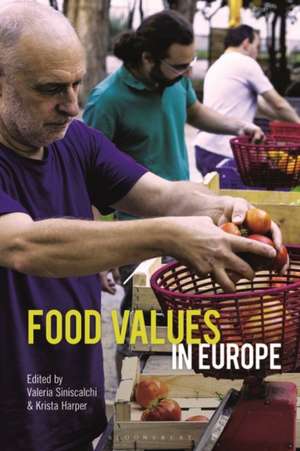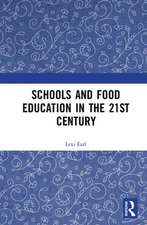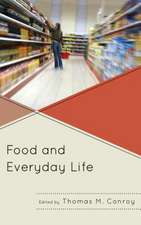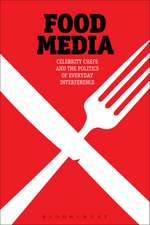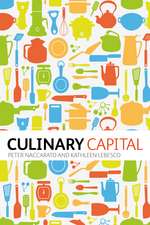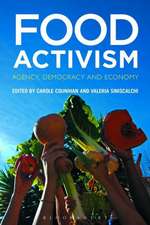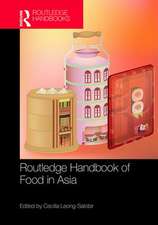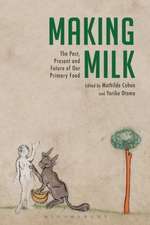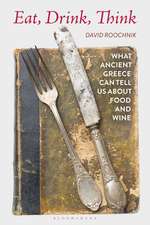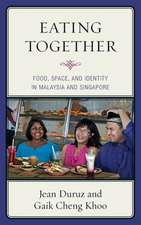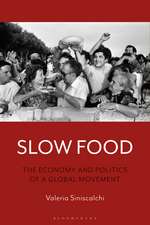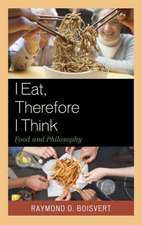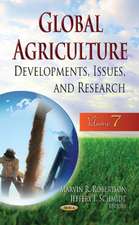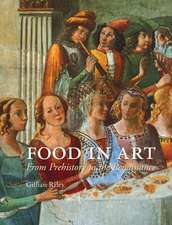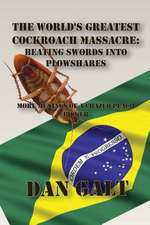Food Values in Europe
Editat de Valeria Siniscalchi, Professor Krista Harperen Limba Engleză Hardback – 4 sep 2019
| Toate formatele și edițiile | Preț | Express |
|---|---|---|
| Paperback (1) | 218.09 lei 43-57 zile | |
| Bloomsbury Publishing – 24 mar 2021 | 218.09 lei 43-57 zile | |
| Hardback (1) | 657.29 lei 43-57 zile | |
| Bloomsbury Publishing – 4 sep 2019 | 657.29 lei 43-57 zile |
Preț: 657.29 lei
Preț vechi: 943.58 lei
-30% Nou
Puncte Express: 986
Preț estimativ în valută:
125.77€ • 131.65$ • 104.68£
125.77€ • 131.65$ • 104.68£
Carte tipărită la comandă
Livrare economică 31 martie-14 aprilie
Preluare comenzi: 021 569.72.76
Specificații
ISBN-13: 9781350084773
ISBN-10: 1350084778
Pagini: 256
Ilustrații: 16 bw illus
Dimensiuni: 156 x 234 mm
Greutate: 0.54 kg
Editura: Bloomsbury Publishing
Colecția Bloomsbury Academic
Locul publicării:London, United Kingdom
ISBN-10: 1350084778
Pagini: 256
Ilustrații: 16 bw illus
Dimensiuni: 156 x 234 mm
Greutate: 0.54 kg
Editura: Bloomsbury Publishing
Colecția Bloomsbury Academic
Locul publicării:London, United Kingdom
Caracteristici
Uses ethnography to get deeper into case studies and present qualitative data regarding 'old' and 'new' values
Notă biografică
Krista Harper is Professor of Anthropology and Public Policy at the University of Massachusetts Amherst in the USA.Valeria Siniscalchi is Professor of Anthropology at the Ecole des Hautes Etudes en Sciences Sociales (EHESS) in France.
Cuprins
List of imagesPreface and AcknowledgmentsForeword - Carole Counihan, Millersville University, USAChapter 1: Value and Values in Food Projects in Europe, Krista Harper, University of Massachusetts Amherst, USA and Valeria Siniscalchi, EHESS - Centre Norbert Elias, FrancePart I: Prosuming ValuesChapter 2: Between Sabor, Saber, and the Market: Food Values and Activism in a Lisbon Urban Garden, Krista Harper, University of Massachusetts Amherst, USA and Ana Isabel Afonso, NOVA FCSH, New University of Lisbon, PortugalChapter 3: Growing Together: Conspicuous Production and Quality Produce in Czech Community Gardens, Cary Speck, University of Massachusetts Amherst, USAChapter 4: Subsistence Farming in Styria, Elisabeth Kosnik, University of Graz, AustriaPart II: Calculating ValuesChapter 5: The Moral Price of Milk: Food Values and the Intersection of Moralities and Economies in Dairy Family Farms in Galicia, Bibiana Martínez, University of Barcelona, Spain Chapter 6: From Milk Price to Milk Value: Sardinian Sheep Herders Facing Neoliberal Restructuring, Filippo M. Zerilli, University of Cagliari, Italy and Marco Pitzalis, University of Cagliari, ItalyChapter 7: "Small Farms, Better Food: Valuing Local Agri-Food Systems in Europe. From the European Peasants Coordination to the Nyéléni European Forum for Food Sovereignty, Delphine Thivet, Bordeaux University, FrancePart III: Connecting ValuesChapter 8: Solidarity, Calculation and Economic Proximity inside the "Vegetable Baskets" System in the South of France,Valeria Siniscalchi, EHESS - Centre Norbert Elias, FranceChapter 9: Within and Beyond the Market System. Organic Food Cooperatives in Catalonia, Patricia Homs, University of Barcelona, Spain and Susana Narotzky, University of Barcelona, SpainChapter 10: 70% Zapatista?: Solidarity "Ecosystems" and the Troubles of Valuing Labor in Food Cooperatives, Theodoros Rakopoulos, University of Oslo, NorwayPart IV: Consuming valuesChapter 11: Fairness is Elsewhere: "Training" Fair Trade in Post-socialist Contexts, Guntra Aistara, Central European University in Budapest, HungaryChapter 12: The Changing Value of Food: Calculating Moldova's Poverty, Jennifer Cash, Max Planck Institute for Social Anthropology, GermanyChapter 13: Food Values Among African Caribbean Migrants in England, Dana Conzo, University of Massachusetts Amherst, USA Chapter 14: Debating Halal in Contemporary Denmark, Johan Fischer, Roskilde University, DenmarkChapter 15: Concluding Comments: The Essential Ambiguity of the Value of Food, Richard Wilk, Indiana University, USAIndex
Recenzii
Food Values in Europe is worth reading and discussing because it brings this exceptionally well-developed anthropology and sociology of European food and agriculture into conversation with the critique of globalized food systems and the commodity fetishisms they entail.
